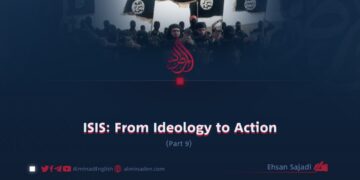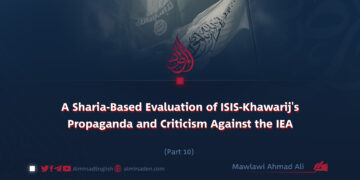Author: Hijaz Tamim
Financial Support from Foreign Companies
It is widely recognized that the Daeshi Khawarij have exploited every possible avenue to establish financial self-sufficiency. Simultaneously, the Western world—at times, either knowingly or through neglect—has facilitated financial opportunities for the group in alignment with its own interests. This section highlights several foreign companies that, under various pretexts, have reportedly provided millions of dollars in financial assistance to ISIS.
1. Lafarge – The French Cement Company
Lafarge has reportedly provided ISIS with more than six million dollars. According to credible reports, there existed a mutual relationship between Lafarge and ISIS. The group facilitated the purchase of raw materials, sale of cement, and ensured the safety of company employees and transport convoys. In return, Lafarge cooperated with ISIS in order to obstruct competitors—particularly by disrupting the import of cheaper Turkish cement into Syria.
According to The Guardian, between 2013 and 2014, Lafarge paid millions of dollars to ISIS to maintain operations at its factory in northern Syria. These payments were made to secure raw materials, permit cement sales, and ensure the safe movement of company transport.
Bruno Pescheux, the head of Lafarge’s Syrian operations, reportedly urged his colleagues to keep these dealings strictly confidential. Internal company emails suggest that senior executives at Lafarge’s headquarters in Paris were aware of the transactions and took steps to conceal the evidence.
In 2022, Lafarge pleaded guilty in a U.S. court to charges of supporting terrorism and was fined $778 million. This marked the first time a corporation was criminally convicted for materially supporting ISIS. In addition, over 800 members of the Yazidi minority—who endured severe atrocities under ISIS—filed a lawsuit in the U.S. against Lafarge, seeking compensation.
Lafarge is also under legal investigation in France for complicity in crimes against humanity. Holcim, Lafarge’s parent company, which acquired it in 2015, claimed no prior knowledge of the Syria-related dealings and stated that these actions were taken without its consent. This case has raised serious questions regarding corporate accountability, particularly for multinational companies operating in conflict zones.
2. Twitter (Now X)
According to a Time magazine report, in 2016, a woman from the U.S. state of Florida, Tamara Fields, filed a lawsuit against Twitter (now X), alleging that the platform had facilitated ISIS’s recruitment, financing, and propaganda. The lawsuit claimed that Twitter provided a means for ISIS leaders to broadcast their messages, attract followers, and secure funding. Although Twitter denied the allegations, the case sparked extensive debate about the responsibilities of tech companies and their potential role in aiding terrorist organizations.
3. Facebook and Google
According to CNN, the families of the victims of the Orlando nightclub shooting filed lawsuits against Facebook, Twitter, and Google, accusing them of enabling ISIS’s propaganda, financing, and recruitment efforts. The plaintiffs claimed that these platforms had allowed ISIS to disseminate messages and recruit new members, thus contributing to the group’s expansion and attacks.
Note:
On June 12, 2016, a mass shooting occurred at Pulse, a gay nightclub in Orlando, Florida. The attack, carried out by a gunman who pledged allegiance to ISIS, became one of the deadliest mass shootings in U.S. history, leaving 49 dead and 53 injured.
4. Tawasul Company
According to a 2018 report by the U.S. Department of the Treasury, Tawasol Company—operating in Syria—was involved in providing financial, material, and technical support to ISIS. Reports indicate that the company was used as a conduit for transferring funds among ISIS fighters.



















































